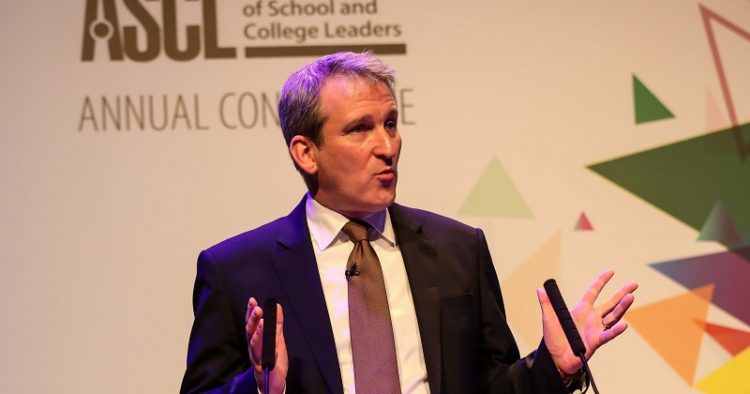By Gabriel Princewill.-
Damien Hinds, the British education minister, has announced a further £10 million to address behavioural problems in schools. The education minister told the Conservative conference in Birmingham that he was injecting the large investment to support the spreading of best practice and knowledge on behaviour management and classroom management.
The Eye Of Media.Com has recently been on The Minister Of Education’s case to address the problem of poor behaviour complained by teachers in several primary and secondary schools in Britain, particularly the latter. His office have always stated they had the matter in their sights, and this announcement might be a big step in that direction. The plan to spend £10m in using practice to address behavioural problems sounds positive. However, the efficacy of such spending will necessarily hinge on how the money will be used to achieve overarching objective of curbing nuisance behaviour in schools.
”We also know and any teacher will tell you that good teaching and learning relies on a calm classroom, Hinds said.
“That starts with academic standards. And the way that the knowledge economy has developed and with the emerging superpowers of the economies of the east, we can’t afford any let up on academic standards and we need to go further and we need to make sure we are putting enough emphasis on the subjects of future, for the global Britain of the future in this change.
WORLD CLASS
‘Now, I think we can say that there are genuinely large parts of our academic system which are truly word class. Many of our state schools, large parts of our university sector, are world class but there is another area which in years gone by has not had enough focus. I’m talking about technical and vocational education, which for decades has not had as much attention as it should. We have already made great strides forwards increasing the quality level of apprenticeships and with more people starting on higher level apprenticeships and even degree level apprenticeships.
AMAZING
Hinds told the conference that since 2010, teachers have made some amazing things happen. Making reference to reforms initiated by his predecessors, by Nicky Morgan, Justine Greening and Michael Gove, he praised primary academic progress in the Uk.
”We are back in the international top ten for primary reading. We have a reformed curriculum and examinations. We have thousands of schools that have been set free as academies. We’ve got 1.9 million more young people studying in good or outstanding schools. And the gap has been narrowed. The gap between the rich and the poor in attainment has narrowed at every stage and every phase from nursery school to university entry”.
Nicky Morgan has been instrumental is enhancing early reading and phonics among very young primary school pupils. This strategy, using sound has been useful in accelerating reading among 5 and 6 year olds in Britain. However, there is a difference between reading ability and overall application and contextualization of reading material.
Reading levels at primary schools have improved notably, but any claim that places British primary school education collectively among the top 10 in the world would be highly contentious. Research conducted by The Eye Of Media.Com shows there are still many primary schools where the mastery of punctuation is very low, but many schools and teachers are getting to grips with this shortcoming. Indeed, there are some world class state and private primary schools in the Uk spearheaded by visionary and driven headteachers and well trained staff. Good and outstanding primary and secondary schools are also on the rise , courtesy of the significantly higher standard of education being superimposed on pupils and schools by the government.
The salient qualities of those Britain’s best schools are being studied carefully with by the British government and a number of bodies like The Eye Of Media.Com and others, with a view to noting the positive and admirable strengths of those schools, with the goal of spreading them across the board of schools in Britain. It will require money and investment, which mr. Hinds says he is willing to do, and has been doing.
INVESTMENT
“And of course a world class education depends on our investment in the future. I say investment, because education spending isn’t just public spending. It is an investment. An investment in the future of those children going through our schools. Also an investment in the future of our country. And as you can see, we are strong investors in education when you look at us compared to other key comparator nations like the G7.
“We have also been investing heavily in the capacity of our system to ensure we have a good supply of good and outstanding places in our schools. In a deliberate scoff at the Labour party,whom he accused for cutting 100,000 places in the British school system in the years running up to 2010, Hinds promised to have have added a million school places to our system.
”And we think that when a school is a good school, when it’s giving a good education, and when it’s popular with parents, that school should be able to expand so that more young people can benefit from what’s on offer”.




